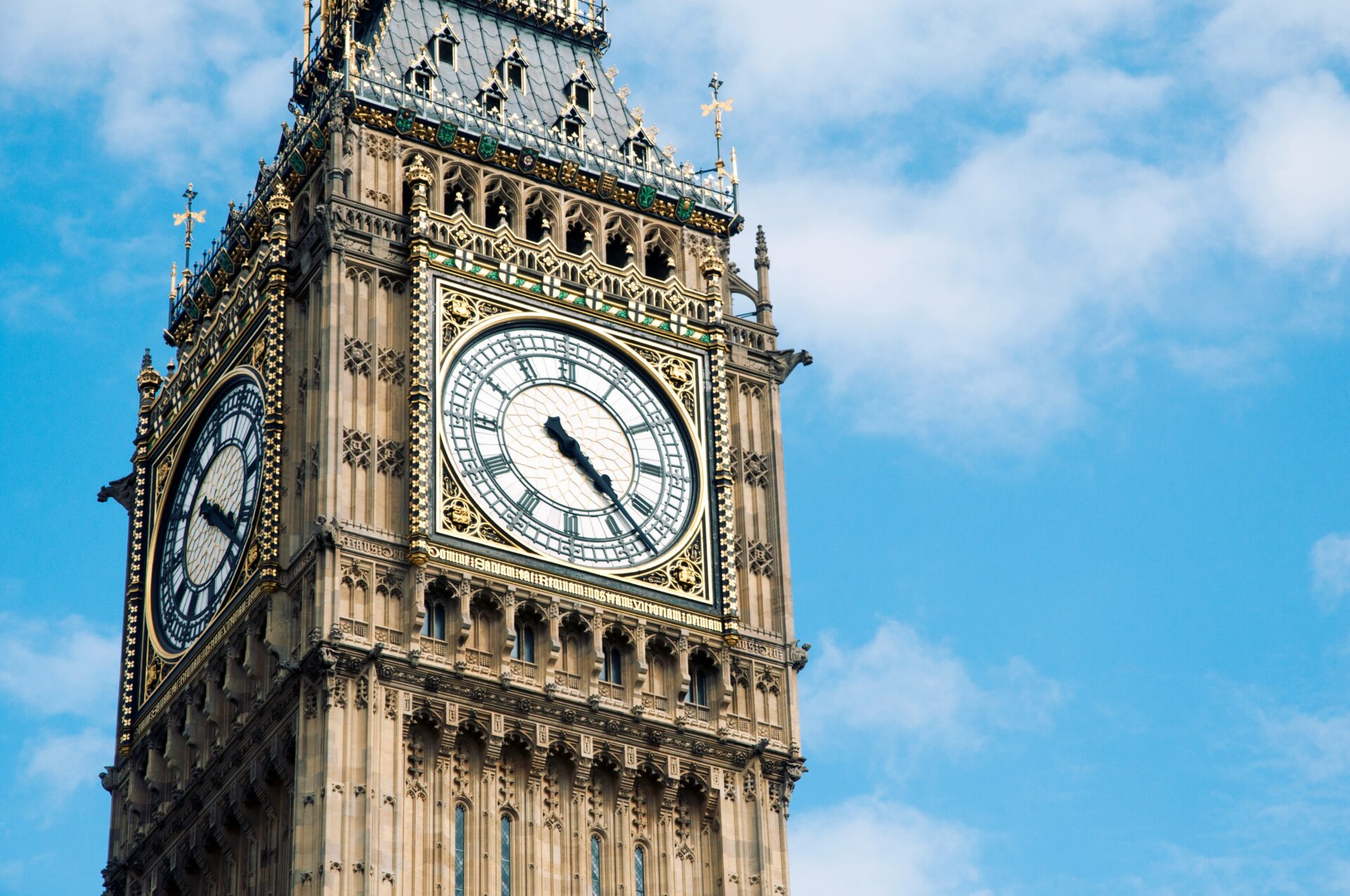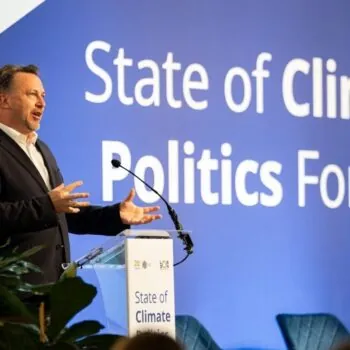The UK’s Leader of the Opposition, and Leader of The Conservative Party, Kemi Badenoch, has vowed to repeal the UK’s Climate Change Act if the Conservative Party wins back power. This has backfired after being met with a united outcry from business, charities and faith leaders.
Cross-party consensus and UK leadership created the Climate Change Act
The UK’s Climate Change Act was the first legislation of its kind in the world, setting legally binding carbon budgets to ensure the UK played its part in ending the climate crisis. It is the UK’s legal foundation for protecting its citizens from climate change and building a high tech, competitive, clean economy and it has a huge amount of support from the public and the business world.
The Act was brought into being in 2008 on the back of a huge civil society campaign and overwhelming cross-party support. When the Act was updated in 2019 to set a net zero target, it was on the back of calls for more ambitious targets by business leaders and the largest mass lobby of Parliament by the public in British Parliamentary history.
A ‘retrograde step’ which goes against scientific reality
The decision to ditch the act marks the implosion in cross-party consensus in support of the Act, but public support remains very strong. Since the legislation was introduced, the British public have seen the impacts of climate change across the world and in the UK itself, with forest fires, droughts and floods exacerbated by global heating causing devastation. Scientists have made it clear that the global temperature will keep rising until we have reached net zero emissions. This is the scientific reality.
Kemi Badenoch labels herself a net zero sceptic, not a climate sceptic. But if you don’t accept the scientific advice that the world has to reach net zero emissions by 2050 to prevent the worst impacts of climate change, then in effect you are rejecting science and putting short-term political opportunism ahead of the national interest.
The ex-Conservative leader, Theresa May, who signed the 2050 net zero target into law rounded on the decision by Badenoch, saying:
“I am deeply disappointed by this retrograde step which upends 17 years of consensus between our main political parties and the scientific community.”
Renewables are the cheapest form of power despite populist disinformation
Badenoch along with Nigel Farage for the Reform Party have both attempted to set a false narrative that decarbonising the economy is bad for the economy and bad for household energy bills. This argument is being amplified almost every day in the right-wing media in an attempt to include climate change as part of the culture wars.
But these arguments are not backed by the evidence.
- This week it was announced that renewables sources have generated more power than coal for the first time in history.
- In the last year, two-thirds of all energy investment was in renewables, with only a third in fossil fuels.
- Since the Climate Change Act was introduced, the world has changed beyond measure. Countries are prioritising climate action not just because they want to stop the climate crisis from going out of control but because renewables are now the cheapest form of power and clean technologies represent a huge economic opportunity.
- The Climate Change Act has been instrumental in giving investors the confidence to invest billions in the UK’s energy transition, helping to create thousands of jobs and keeping our economy competitive.
- The UK green economy grew 10% last year. Destroying the foundation stone for the clean economy would destabilise the entire UK economy and guarantee that we would lose the global race to zero emissions.
- Axing the Act would also make British citizens poorer and more vulnerable to energy price shocks. Following the Russian invasion of Ukraine, gas prices trebled and the Government ended up having to spend more than £40 billion bailing out UK households. The cost for every household has run into the thousands. It cost UK industry £28 billion in higher energy bills. That is the price of fossil fuel dependence. Badenoch and Farage’s claim that prioritising fossil fuels will protect British households from high energy bills is demonstrably false.
- Badenoch also fails to face the cost of inaction. Failing to stop climate change in line with scientific advice will lead to much higher mitigation and adaptation costs down the line as well as catastrophic economic damage. The Institute and Faculty of Actuaries has calculated that it could lead to a loss of 50% of global GDP before the end of the century. That is not a recession. That is economic collapse.
Voters want more action on climate and on energy security, not less
The attempts to turn the British public against climate action does not only make no scientific or economic sense, it makes no political sense. Polling shows that the majority of Conservatives, indeed the majority of voters from all parties, want political parties to do more to combat climate change. Voters are also in favour of expanding the use of renewables to help bring down energy bills.
In her attempts to court the Reform voter base, Badenoch is at risk of alienating mainstream voters. By rejecting a legally binding net zero 2050 target, she has also put herself at odds with all the centre right parties in Europe. She has now aligned herself on climate change with the far-right parties.
Ultimately, political leaders have a duty to protect their citizens from harm. Axing the Climate Change Act would do the reverse – ceding British leadership to combat the greatest threat that humanity faces whilst undermining the economic foundations of the country.
The Conservative Party played a vital role in the development of the Climate Change Act – a record for which they should be deeply proud. The commitment to repeal the Act suggests that they are now putting the interests of fossil fuel investors ahead of the security of the British people. That is not leadership. That is surrender.


